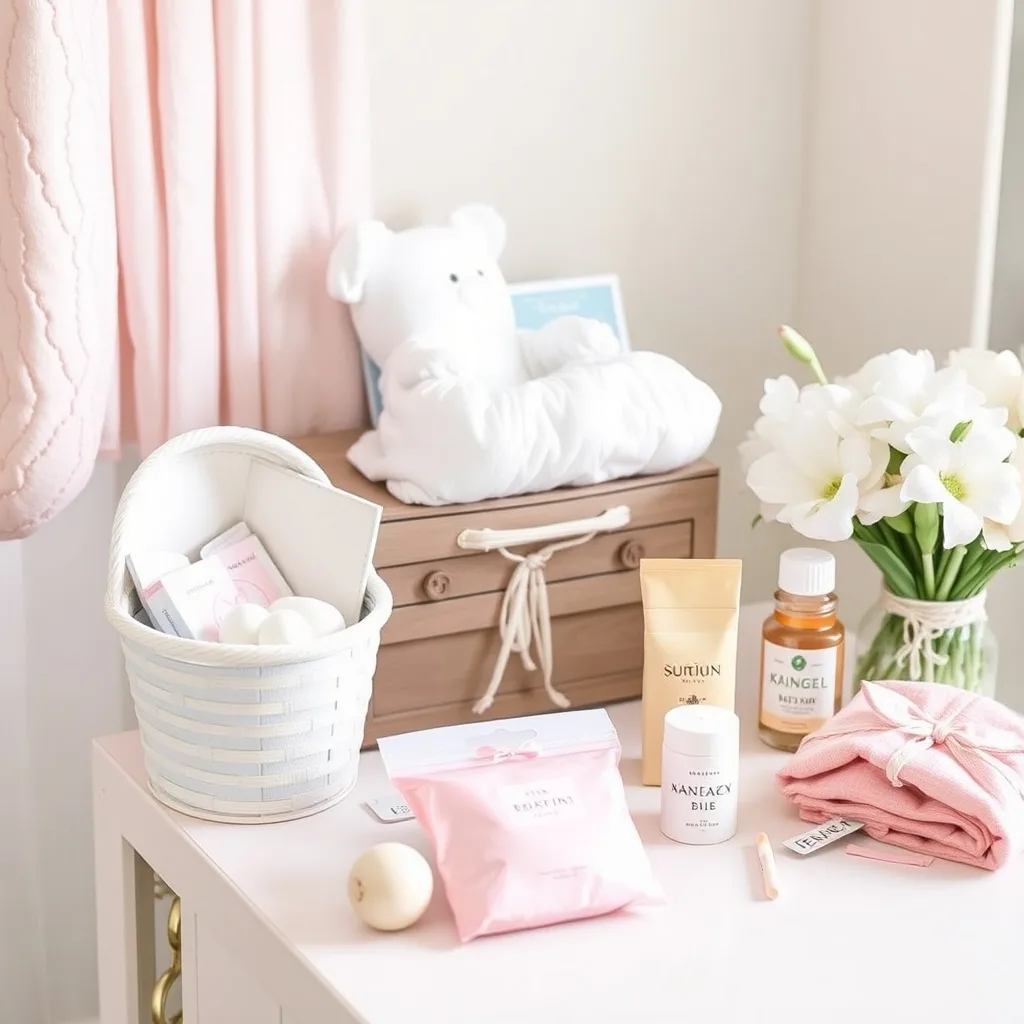Noticing your Baby Sleeping with Mouth Open can leave you wondering if it’s normal or cause for concern. While it’s common for babies to occasionally sleep this way, understanding why it happens can help you recognize any underlying issues and support their health. In this article, we’ll explore why babies might sleep with their mouths open when it’s a sign to seek advice, and what parents can do to encourage better breathing habits. Let’s dive in and ensure your little one’s sleep is as safe and restful as possible!
Table of Contents
Editor’s Choice: Essential Facts
- Mouth breathing affects up to 30-50% of children at some point
- Early intervention can prevent 85% of long-term complications
- Most cases are resolved with proper medical treatment
- Scientific studies show direct links between mouth breathing and sleep quality
- Expert-backed solutions available for all age groups
Understanding Baby Mouth Breathing: A Comprehensive Guide

When you notice your baby sleeping with mouth open, it’s natural to feel concerned. This comprehensive guide will help you understand this common condition, from causes to solutions. Whether you’re a new parent or an experienced caregiver, this information will help you make informed decisions about your baby’s health.
Best Sleeping Position for a Baby with a Stuffy Nose
The Science Behind Mouth Breathing in Babies
Babies are naturally designed to be nasal breathers. When a baby sleeps with their mouth open, it often indicates they’re compensating for restricted nasal breathing. Let’s explore the physiological aspects:
Natural Breathing Patterns
- Nasal breathing filters air
- Helps regulate temperature
- Produces nitric oxide for healthy development
- Supports proper oxygen circulation
Mouth Breathing Mechanics
- Bypasses natural filtration
- May lead to overbreathing
- Can affect oxygen absorption
- Impacts sleep quality
Primary Causes of Mouth Breathing in Babies

1. Physical Obstructions
- Enlarged Adenoids
- Natural immune tissue
- Can become swollen
- May block nasal passages
- Enlarged Tonsils
- Common in young children
- Can restrict airflow
- Often temporary condition
2. Environmental Factors
- Air Quality
- Dust and allergens
- Humidity levels
- Temperature variations
- Seasonal Changes
- Pollen counts
- Weather transitions
- Indoor heating/cooling effects
3. Medical Conditions
- Allergies
- Food sensitivities
- Environmental triggers
- Seasonal reactions
- Respiratory Infections
- Common colds
- Sinus infections
- Bronchial issues
Impact on Baby Development
Physical Development
- Facial Structure
- Jaw alignment
- Palate formation
- Dental development
- Respiratory System
- Lung capacity
- Breathing efficiency
- Oxygen utilization
Cognitive Development
- Sleep Quality
- REM sleep cycles
- Brain development
- Memory consolidation
- Daily Function
- Energy levels
- Attention span
- Mood regulation
Age-Specific Solutions and Interventions

Newborns (0-3 Months)
- Immediate Care
- Gentle nasal suctioning
- Humidity management
- Position adjustments
- Preventive Measures
- Regular monitoring
- Environmental controls
- Feeding position optimization
Infants (3-6 Months)
- Active Management
- Sleep position guidance
- Environmental modifications
- Feeding adaptations
- Development Support
- Tummy time exercises
- Proper head positioning
- Oral development activities
Older Babies (6-12 Months)
- Long-term Solutions
- Sleep routine establishment
- Environmental optimization
- Developmental exercises
- Preventive Care
- Regular check-ups
- Milestone monitoring
- Early intervention strategies
Professional Intervention Guidelines
When to Seek Immediate Care
- Emergency Signs
- Breathing difficulties
- Color changes
- Unusual sounds
- Feeding problems
- Urgent Symptoms
- Persistent congestion
- Sleep disturbances
- Behavioral changes
- Development concerns
Medical Assessment Process
- Initial Evaluation
- Physical examination
- Medical history review
- Sleep pattern assessment
- Development screening
- Specialized Testing
- Sleep studies
- Allergy testing
- Structural evaluation
- Breathing assessments
Natural Remedies and Home Care
Environmental Modifications
- Room Setup
- Optimal temperature (68-72°F)
- Humidity control (40-50%)
- Air purification
- Allergen reduction
- Sleep Environment
- Proper bedding
- Elevation considerations
- Air circulation
- Noise control
Daily Care Routines
- Nasal Hygiene
- Saline drops
- Gentle cleaning
- Steam therapy
- Massage techniques
- Positioning Techniques
- Safe sleep positions
- Feeding adjustments
- Activity modifications
- Rest period management
Long-term Management Strategies
Monitoring Progress
- Development Tracking
- Sleep patterns
- Breathing changes
- Growth indicators
- Behavioral signs
- Documentation Methods
- Sleep diary
- Symptom tracking
- Progress photos
- Medical records
Prevention Planning
- Risk Reduction
- Environmental control
- Regular check-ups
- Early intervention
- Education updates
- Future Planning
- Development goals
- Medical follow-up
- Family education
- Support resources
Expert Q&A Section
Q: Can mouth breathing affect my baby’s facial development? A: Yes, prolonged mouth breathing can impact facial development by affecting jaw growth and dental alignment. Early intervention is crucial for preventing long-term effects.
Q: How can I tell if my baby’s mouth breathing is serious? A: Monitor for signs like persistent snoring, sleep disturbances, irritability, and feeding difficulties. Any combination of these symptoms warrants medical attention.
Q: What are the best immediate solutions for nighttime mouth breathing? A: Focus on clearing nasal passages, maintaining proper humidity, and ensuring proper sleep position. Consult your pediatrician for personalized advice.
Q: Does mouth breathing indicate sleep apnea? A: While mouth breathing can be a symptom of sleep apnea, it doesn’t always indicate this condition. Professional evaluation is needed for proper diagnosis.
Prevention Tips by Age Group
Newborn Prevention (0-3 Months)
- Regular nasal cleaning
- Proper feeding position
- Environmental control
- Sleep position management
Infant Prevention (3-6 Months)
- Developmental exercises
- Feeding adaptations
- Sleep routine establishment
- Regular monitoring
Older Baby Prevention (6-12 Months)
- Activity modifications
- Environmental optimization
- Developmental support
- Regular assessment
Advanced Care Guidelines
Medical Interventions
- Common Treatments
- Medication options
- Physical therapy
- Structural corrections
- Developmental support
- Specialized Care
- ENT consultation
- Sleep studies
- Developmental assessment
- Family support
Support Resources
- Professional Help
- Medical specialists
- Therapy options
- Support groups
- Educational resources
- Family Support
- Parent education
- Caregiver training
- Community resources
- Online support
Conclusion and Action Steps
Understanding and addressing baby sleeping with mouth open is crucial for proper development and health. While it’s a common concern, proper knowledge and early intervention can prevent most complications. Always consult healthcare providers for personalized advice and treatment plans.
Key Action Items:
- Monitor breathing patterns
- Document concerns
- Implement preventive measures
- Seek professional guidance when needed
- Maintain regular check-ups











